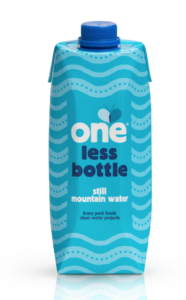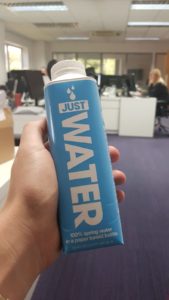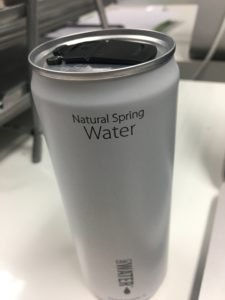Over the last century, plastic has become a part of our everyday lives and now it’s hitting the headlines for the wrong reasons. We use it for our kitchen products, our bathroom products, food and drink containers. Every single day. Often it’s single use, and even though most plastic can be recycled, its frequently confined to the dump or the ocean. In fact, 79% of the plastic ever created, is in our environment (Source: Recycle Now). Whilst it’s versatile and incredibly useful, this virtually indestructible material has become a critical danger to our planet. This is where the need for eco-friendly packaging comes in.
A plastic bottle will take hundreds of years to decompose and because of this, brands and businesses across the world are looking at better resources. In the last year various plastic products have faced the limelight including plastic straws, plastic bags and coffee cups. Plastic bottles are now taking centre stage as brands investigate ways of creating more eco-friendly packaging. It is estimated that an average of 35.8 million plastic bottles are used every day in the UK, but only 19.8 million are recycled each day. This means a staggering 16 million plastic bottles a day are making their way into the environment (Source: Recycle Now).
Good progress has been made, with the war against plastic evident across the nation. Plastic shopping bags were given a 5p charge in 2015 which reduced the amount of disposable bags in England by 86%. Even some UK festivals have joined the fight by banning single-use plastic. Bestival ruled out plastic bottled water this year, instead working with CanO water, as featured below, to offer water in aluminium cans. The decision follows calls for straws to be banned from festivals. In fact, Bestival joined 60 other independent festivals in a new campaign called ‘The Final Straw’. The campaign saw the events commit to ban all single-use plastic from their sites by 2021.
Here is a look a three inspiring water brands, who in response to the damaging impact of plastic, have found ways to create bottles from other materials.
 One Water
One Water
From the clever bunch at One Difference, this UK based ethical brand has already impressed us with the charitable benefits of its water. A life changing ethical drinks brand, their profits fund sustainable drinks projects for some of the worlds most vulnerable people. To date the company have raised over £17.4 million for sustainable water projects; providing clean, safe water to over 3.3 million people in the worlds poorest countries. The aim is to raise £20 million by 2020. The company took their sustainable water to the next level and brought out a carton version. This new eco-friendly packaging is fully recyclable and made from paperboard from FSC approved forests.
 Just Water
Just Water
American brand, Just Water, was freshly introduced to the UK this summer. The water is ethically sourced and ethically bottled.
The company don’t claim to be the perfect solution for eco-friendly packaging but instead a huge step in the right direction. They offer a model for valuing water in a world where water is increasingly scarce, consider the materials used, where they came from and how they can be reused.
82% of every Just Water bottle is plant-derived, the paper comes from trees, the cap and shoulder come from sugar cane. The bottle design results in a 74% reduction in carbon emissions compared to a standard plastic bottle. The best bit is that the bottle is 100% recyclable, efficient to ship and you can reuse it on the go. Even the actual water is sourced sustainably too, with the UK’s Just Water content coming from Northern Ireland. In America, it comes from New York.
 CanO Water
CanO Water
CanO Water supply an indefinitely recyclable option to plastic bottles. They use aluminium cans to contain their water. When a can is recycled it can be back on the shelf in less than six weeks and they stay colder for longer – keeping you cool on the go. CanO Water even have a resealable option which means unlike normal cans, it can be refilled and resealed on the go – rather than just down in one. According to CanO Water about 75% of all aluminium produced since 1888 is still in productive use (Source: CanO Water). This is a sharp contrast to plastic bottles, where only 9% are recycled.
No company claims to have the answer to eco-friendly packaging. However, they have found sustainable solutions which help limit the damaging amount of plastic which is otherwise sent to landfill or dumped in our oceans. Will an outright ban on plastic bottles be next?
Have a read of SLO Active’s guide to the impact of plastic in our oceans and what we can do about it.
Say hello
Get in touch or come for a visit
